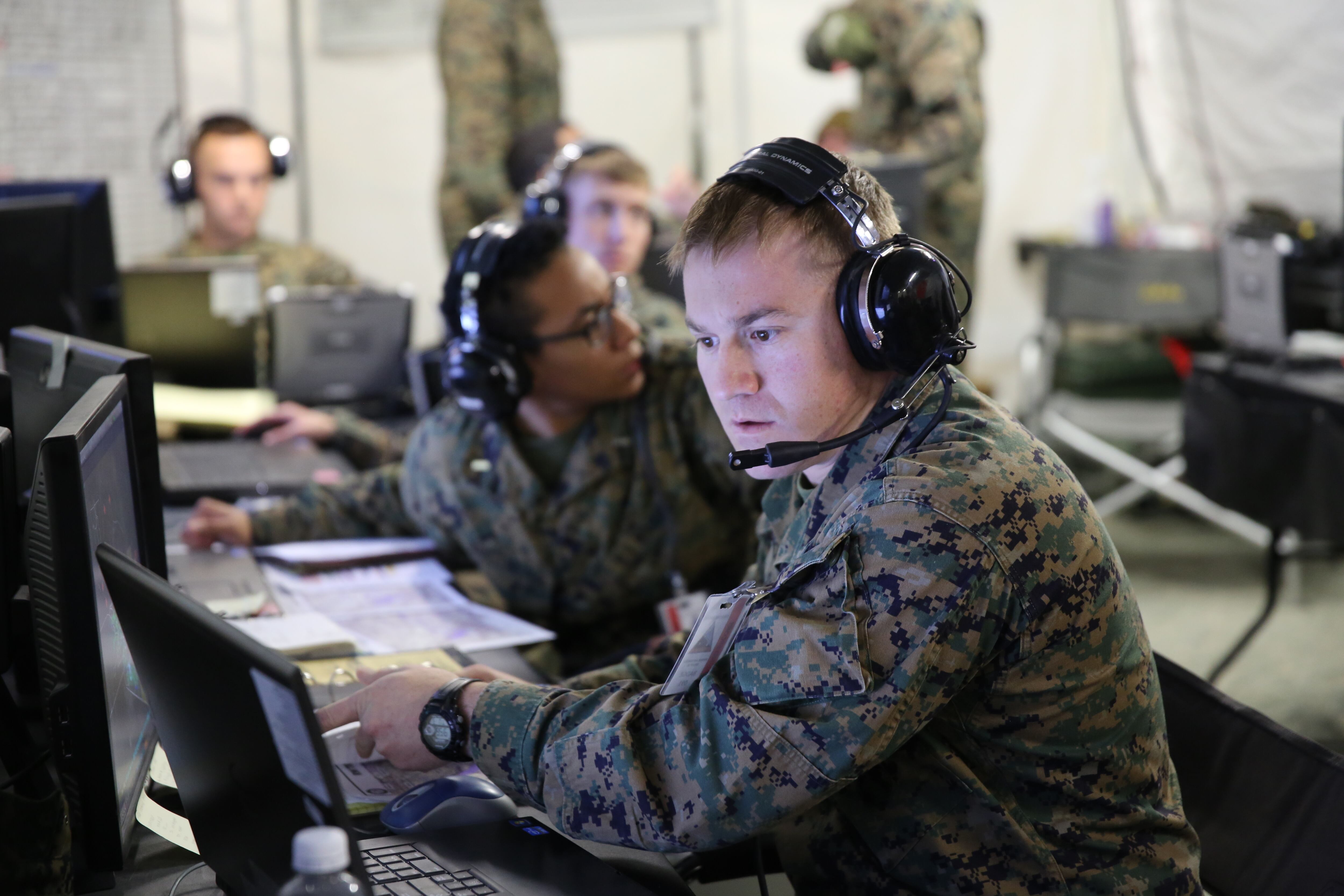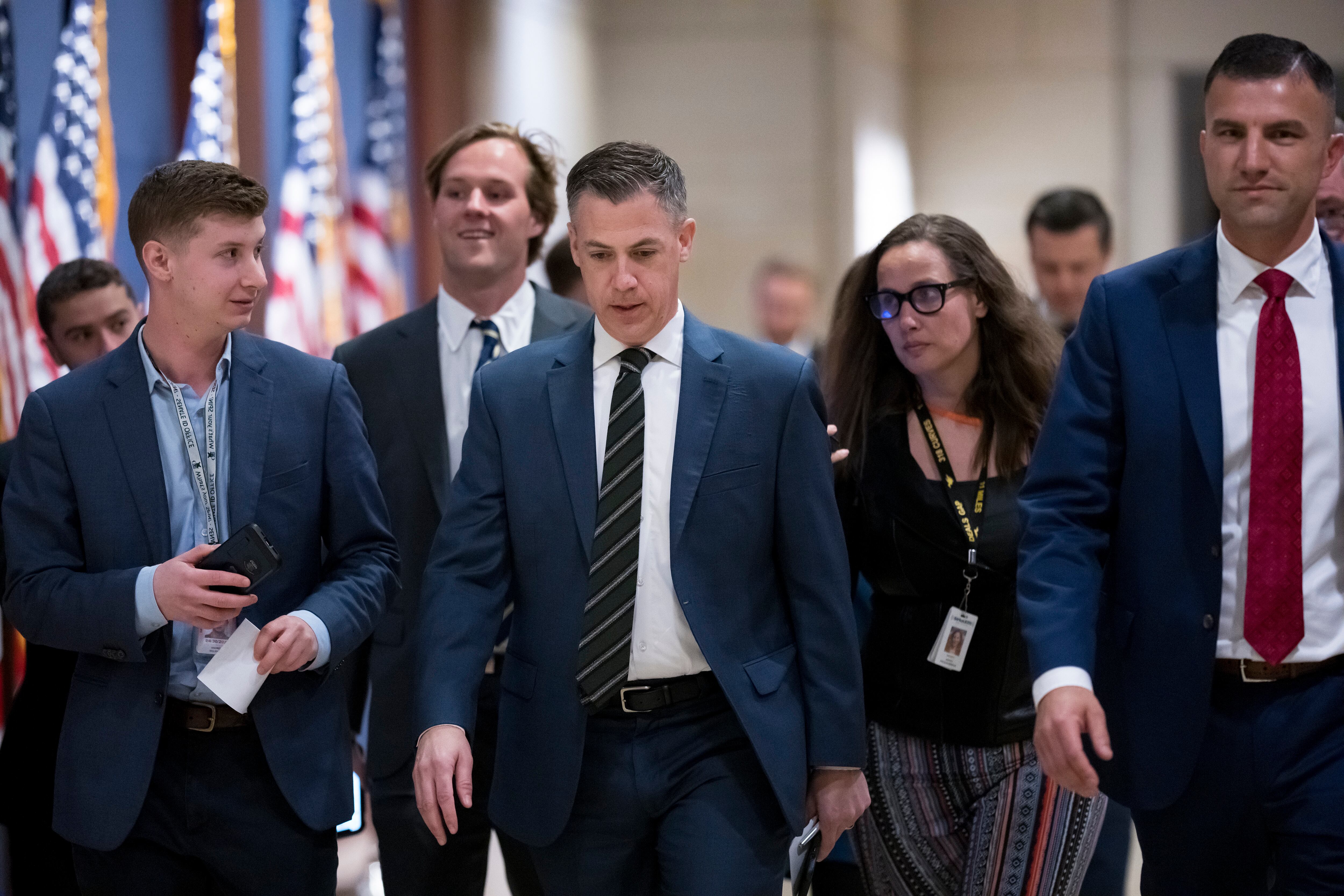MARINE CORPS BASE QUANTICO, Va. — A new cyber-security chair at Marine Corps University will oversee the integration of cyber studies curriculum into nearly every facet of professional military education for Marines, from lance corporals through senior commanders, as the U.S. cyber security apparatus reels from recent, high-profile attacks including a massive breach of the Office of Personnel Management.
The first professor to fill the newly created position is rRetired Air Force Col. Gary Brown is the first to fill the new position here. At the end of his Before leaving the military after a 24-year military career, Brown served whose final assignment during a 24-year career was as the first senior legal counsel for U.S. Cyber Command when it was created in 2009.
Bolstering Brown, who started in April and says bolstering cyber education is crucial, he said., as critical priority. Today eEvery All Marines are is connected to a network, making them potential — even if unwitting — security liabilities as they check emails, surf the web or use social media.
"Everybody is attached to the [Internet] and so everybody presents an attack surface or a vulnerability to the enterprise," he said, from his office in the Alfred M. Gray Marine Corps Research Center here. at Marine Corps Base Quantico, Virginia. "The number one thing we need to do is educate people about those threats to the network that they present."
Awareness will drive his campaign to introduce Marines to cyber education at all ranks, he added said Brown whose final assignment during a 24-year career was as the first senior legal counsel for U.S. Cyber Command when it was created 2009.
"Every Marine is a rifleman, but not every Marine will be an offensive cyber warrior," he said. "But, everybody needs to be aware of cyber defense." he said.

First Lt. Aaron Smith uses a computer during a training exercise at Marine Corps Air Station Cherry Point, N.C. A new cyber professor at the Marine Corps University will help develop cyber-security lessons for all Marines' professional military education courses.
Photo Credit: Cpl. Grace L. Waladkewics/Marine Corps
Already, Brown is working he has worked to integrate cyber lessons into the existing curricula curriculums at the Marine Corps' MCU’s Command and Staff College and the School of Advanced Warfighting — two schools mostly attended by majors who are being that seek to groomed to become future planners and commanders commadners. But, in the year ahead, Brown said as he surveys the rest of the Corps’ PME, he he will also devise ways to incorporate relate cyber education into the Marines' existing lesson plans for such things as the in for Marines taking over courses, too, like Sergeants Course andor Lance Corporal Leadership and Ethics Seminar.
Recognizing that Marines already have a lot on their plate and that existing PME occupies a fixed number of hours, he seeks to relate cyber to things Marines already study rather than creating new blocks of study. As it were, that conveniently makes most sense since nearly everything Marines already study has a cyber security component to it — even if that has gone woefully neglected in some cases. [[James, I think we should hold these details for State of the Marine Corps GH]]
While his goal is not to make every Marine a cyber-specialist able to deliver tactical cyber attacks, Brown said he intends to ensure every Marine has some understanding of defensive and offensive cyber capabilities. That means educating junior Marines in safe cyber habits and equipping senior Marines, including commanders and operational planners, with enough knowledge to understand how what cyber specialists can bring to bear in support of battlefield operations.
"It is one more arrow in your quiver," he said. "If you have some idea of what capabilities might be out there to ask about or, on the other hand, what capabilities our adversaries have [that they can]to use against us, you might be able to recognize that you are under attack.
"I go back to my Air Force days and think, you ask the guys on the ground what effect you want and we will figure out how to get the effect you want. Don’t tell us exactly what plane and what bomb. You don’t need to know that. Just tell us, 'Wwe need that thing over there destroyed at this time.' "
Similarly, Marines may not need to know how to write code for a cyber attack, but they need enough education to know they can call for one and the results they are seeking. The cyber operators will figure out the details.
Similarly, Marine may not need to know, how to write code for an attack, but they need enough cyber education to know they can call for it. The cyber operators will figure out the details.





